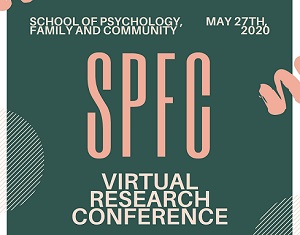Faculty-Student Collaboration
1
Faculty Sponsor(s)
Tom Carpenter, Ph.D.
Presentation Type
Event
Project Type
Research in progress
Primary Department
Psychology
Description
This study examines the degree people’s attitudes toward the environment change to avoid follow-through and how this attitude-intention gap (Kollmuss & Agyeman, 2002) is moderated by guilt and shame dispositions. Nguyen, Nguyen, & Hoang (2018) demonstrate that individuals generally support the environment in surveys yet not in practice. Additionally, prior research suggests guilt-prone individuals are more honest (Cohen, Kim, Jordan, & Panter, 2016; Cohen, Wolf, Panter, & Insko, 2011). We present data from an ongoing laboratory experiment where expressing green attitudes either requires follow-through or not. We hypothesize that guilt-prone participants will be less likely to abandon green beliefs when doing so is costly.
Copyright Status
http://rightsstatements.org/vocab/InC/1.0/
Additional Rights Information
Copyright held by author(s).
Included in
Actions and words: Testing the effect of required follow-through on green consumer attitudes.
This study examines the degree people’s attitudes toward the environment change to avoid follow-through and how this attitude-intention gap (Kollmuss & Agyeman, 2002) is moderated by guilt and shame dispositions. Nguyen, Nguyen, & Hoang (2018) demonstrate that individuals generally support the environment in surveys yet not in practice. Additionally, prior research suggests guilt-prone individuals are more honest (Cohen, Kim, Jordan, & Panter, 2016; Cohen, Wolf, Panter, & Insko, 2011). We present data from an ongoing laboratory experiment where expressing green attitudes either requires follow-through or not. We hypothesize that guilt-prone participants will be less likely to abandon green beliefs when doing so is costly.


